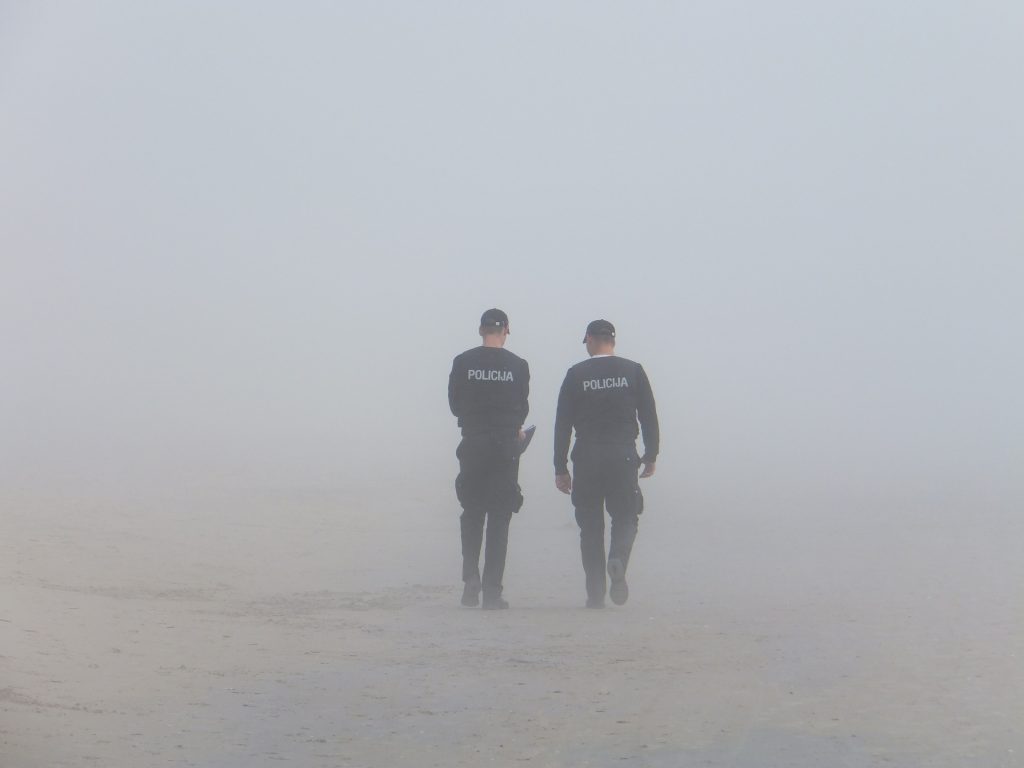December the 19th, 2023 – The Croatian police arrested a total of 1700 people smugglers this year alone, as revealed by Interior Minister Davor Božinović at Monday’s Schengen panel in Zagreb.
As Poslovni Dnevnik writes, the number of illegal crossings into the Republic of Croatia this year is 40 percent higher than last year, said Davor Božinović at a panel entitled “Schengen today and tomorrow: A security perspective” held at the European Parliament meeting in Zagreb.
Most of those individuals came from Afghanistan, others are Turkish, and the third are Russian nationals, added Davor Božinović.
An 80% increase in people smuggler arrests
As for people smugglers arrested by the Croatian authorities this year, the number stands at an alarming 1700. This is a massive 80 percent increase compared to last year, and they charge five thousand euros for enabling people the illegal crossing of Croatian territory. This represents about a third of the total number of people smugglers arrested throughout the entire EU as a bloc.
There are no indications that the influx of migrants will stop, but the situation is different from how it was back in 2015. Back then, these issues were mostly to do with people fleeing war, while today, it’s all about economic migrants, revealed Minister Davor Božinović.
“Some countries that once said that it was a human rights issue are now saying that they no longer have the capacity and that they can no longer do it,” said the minister, before denying that Croatia needed help from Frontex, the European border guard agency.
The Republic of Croatia’s border is guarded by 6,700 border guards and several thousand intervention police officers, making it “five times larger than the total composition of Frontex”, said Davor Božinović. In addition, the largest number of educators for Frontex members are actually members of the Croatian police.
If Croatia hadn’t successfully protected its borders, in accordance with high standards and respecting European Union legislation, it would not have become a member of the Schengen area, the minister said, stressing that Croatia has always clearly communicated the message in Brussels that “it will never become a hotspot”.
Karlo Ressler believes that the EU is beginning to look at this situation with more common sense
Siniša Hajdaš Dončić, Member of Parliament and President of the Committee for Internal Policy and National Security, assessed the approach of the Croatian police as a rating of four, being “very good”. He expressed disagreement with the calls of right-wing politicians for the introduction of army help or razor wire on the border. That hasn’t proven to be a successful method either across the pond on the US border, or at the nearby Hungarian border.
He emphasised that Croatia represents an area for the “flow” of migrants. He added that the EU simply won’t manage to solve this issue while non-EU countries like Serbia, Montenegro and Macedonia continue to have a visa-free regime for third country nationals from which migrants then arrive at the EU’s external borders.
Davor Božinović told the panel that 98 percent of those who request asylum in Croatia or show their intention to do so, end up leaving the country within 24 to 48 hours.
Representative in the European Parliament Karlo Ressler warned that a fifth of those who were ordered to be deported after a final court decision continue to remain on EU territory, “which is unacceptable”. He believes that the bloc is now finally returning to a “common sense” approach to migration.
“Today, those who need protection the most don’t come to the EU, only those who can afford to come here, come here,” said Ressler, adding that today it should no longer be taboo to just say it how it is.
“If we want to have legal migration and help those who are most vulnerable, then we must have order,” added the EPP representative.
“The Ministry of the Interior shouldn’t have to cope with this alone”
Senada Šelo Šabić, senior research associate at the Institute for Development and International Relations, said that it isn’t “fair” that the increasing weight of the issue of illegal migration is carried solely by the Ministry of the Interior. She believes that this particular ministry “carries too much of the burden, the focus of the public, and the coordination of various services and work at both the EU and national level”.
She believes that this issue is much more complex and that non-political actors should also be involved in it. Croatia needs a coordinated policy and integration strategy “so as not to repeat the mistakes of other countries”, said Šelo Šabić.
Božinović emphasised the fact that Croatia does need foreign labour, adding that 11,000 residence and work permits were issued in 2017, 124,000 were issued last year, and 160,000 permits had been rubber stamped this year until November.
Hajdaš Dončić said that Croatia will need 400,000 foreign workers in a few years to maintain its current economic level.
The Minister of the Interior believes that this is one of several issues that will determine the future of the European Union. That said, he believes that it is extremely complex and therefore cannot be the subject of simple explanations, and the population will understand this when essential jobs will remain vacant due to a lack of manpower.









